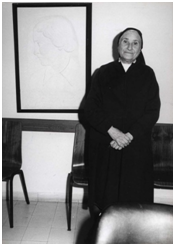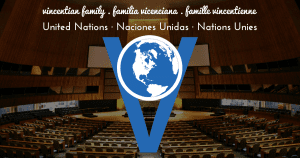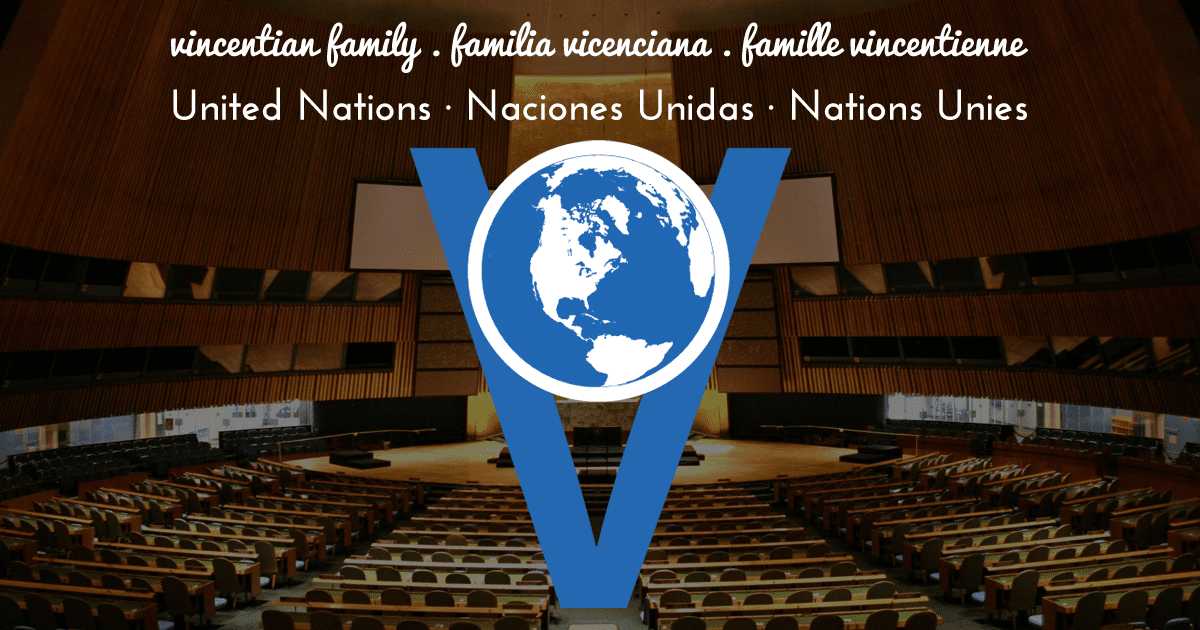The Remembrance of the Holocaust
For a personal story about a Holocaust survivor, click the video below:
Surely, one who might have seen movies such as Sophie’s Choice, Schindler’s List, or Life Is Beautiful would be saying to herself about the Holocaust, “Never again. The world can’t ever again allow the perpetuation of such atrocities.”
The message bears amplification in our contemporary, conflict-ridden world.
Tomorrow—January 27–the United Nations honors International Day of Commemoration in Memory of the Victims of the Holocaust. It also commemorates the day when Soviet troops liberated the Nazi concentration and death camp Auschwitz-Birkenau in Poland in 1945.
THEME PROMOTES EDUCATION TO PREVENT EXTREMISM AND GENOCIDE
The theme is: “Holocaust Remembrance: Educating for a Better Future.” The theme is an appeal for education which promotes respect for human rights, increased tolerance, and defense of our common humanity. As the UN Department of Information points out, “the Holocaust was a defining point in history and its lessons have much to teach about the danger of extremism and the prevention of genocide today.”
POPE FRANCIS’ VISIT TO AUSCHWITZ
Pope Francis traveled to Auschwitz last July. He met with 12 Auschwitz survivors and prayed. The Pope penned in the Auschwitz guestbook, “Lord, have mercy on your people. Lord, forgive so much cruelty.”
As part of his visit to Auschwitz, Pope Francis further visited the cell where now Saint Maximillian Kolbe had been held in 1941. It was Kolbe who volunteered to take the place of another prisoner chosen to be starved to death. “Beyond armies of occupation and the hecatombs of extermination camps, there are two irreconcilable enemies in the depth of every soul: good and evil, sin and love,” Kolbe said of those horrific times.
The Pope then urged Catholics to help people of other faiths who are seeking refuge, and appealed for Europeans to offer protection to Muslims who had poured into the Continent from places like Syria.

Figure 2. Sr. Marguerite Bernes; The World Holocaust Remembrance Center Photo
VINCENTIAN FAMILY ROLE IN AIDING JEWISH PERSONS DURING WORLD WAR II
What part did the Vincentian Family play in addressing the needs of their Jewish neighbors during World War II? Here are a few accounts. Guardian Angel House, a residence of the Daughters of Charity in Budapest, Hungary, housed one hundred Jewish children. (FAMVIN May 10, 2009) Sister Marguerite Bernes, of the Daughters of Charity’s San Giaccomo convent in Italy, hid Jews in the convent and in the attic of the nearby church. (http://db.yadvashem.org/righteous/righteousName.html?language=en&itemId=4042766)
Sister Agnes, (nee Clare) Walsh, of England, recovered from a fall at the Daughters of Charity’s St. Vincent de Paul Convent in Cadouin, Dordogne, France, which became occupied territory. There, she was approached by Pierre Cremieux, a French Jew, and asked to hide his wife, seven-year-old son, and four month-old twins. She pleaded with her superior, Sister Grainier, to shelter the family until liberation. (“Ten Catholic Heroes of the Holocaust,” by Simon Caldwell, January 19, 2011)
When Georges Garel agreed in 1943 to organize a network in the south of France for children of trapped Jewish families, Garel contacted multiple organizations. Various groups in each department or diocese of that area took in children. Among them were the Conferences of Saint Vincent de Paul. (Holocaust: A History, by Deborah Dwork, Robert Jan Pelt, and Jan Van Pelt; 2002; at page 3370)
Given these examples from the 1940’s, one might ask how we, as a Vincentian Family, are called to imitate such acts of welcoming and aiding the distressed stranger in today’s world.
EVENTS PLANNED AT THE UN
In keeping with International Holocaust Remembrance Day, various events are planned at the UN. Today, a panel of experts will examine the powerful propaganda that enabled Nazis to successfully spread their racist ideology and gain influence. The panel will look at the propaganda’s impact, how society overcame it, and lessons to be learned for preventing extremism and promoting a peaceful world.
Two displays opened at the UN earlier this week. “Education and Remembrance. The Holocaust in Romania,” opened on Monday, while “State of Deception: The Power of Nazi Propoganda, opened on Tuesday.” The exhibition emphasizes why the issue of propaganda matters and challenges visitors to question, analyze, and seek the truth.
The movie, Persona Non Grate, was shown yesterday. The film reveals the story of Chiune Sugihara, a Japanese diplomat whose decision to issue visas to Jewish refugees in Kaunas, Lithuania, saved thousands of lives. Jacob the Liar (1974) shows today at 7:00 pm at the Czech Center of New York. Tomorrow, Author Nina Wolff-Feld will speak at the UN of her father’s experience as a Holocaust survivor. She has written the book, Someday You Will Understand.
FORMER UN SECRETARY GENERAL BAN KI-MOON ON THE HOLOCAUST
“The memory of the Holocaust is a powerful reminder of what can happen when we stop seeing our common humanity,” said UN Secretary General Ban Ki-Moon last year. “On this day of remembrance, I urge everyone to denounce political and religious ideologies that set people against people. Let us all speak out against anti-Semitism and attacks against religious, ethnic or other groups. Let us create a world where dignity is respected, diversity is celebrated, and peace is permanent.”
THE HOLOCAUST AND THE UNITED NATIONS OUTREACH PROGRAM; RESOLUTIONS 60/7 AND 61/255
According to the UN’s Department of Public Information, The Holocaust and the United Nations Outreach Program seeks to remind the world of lessons to be learned from the Holocaust in order to help to prevent future acts of genocide. The Outreach Program was created at the request of the United Nations General Assembly in its resolution 60/7, adopted on November 1, 2005. The United Nations Department of Public Information (UN DPI) created a broad initiative, designed to encourage the development by United Nations Member States of educational curricula on the subject of the Holocaust, and to mobilize civil society for education and awareness.
Recalling the Universal Declaration of Human Rights, the United Nations General Assembly reaffirmed, in 2005, that ‘the Holocaust, which resulted in the murder of one-third of the Jewish people along with countless members of other minorities, will forever be a warning to all people of the dangers of hatred, bigotry, racism and prejudice.”
Resolution 60/7 rejects any denial of the Holocaust as an historical event, either in full or in part, and commends those states which have actively engaged in the preservation of sites which served as Nazi death camps, concentration camps, forced labor camps and prisons during the Holocaust.
In Resolution 61/255, adopted on January 26, 2007, United Nations General Assembly further condemned any denial of the Holocaust and urged all Member States unreservedly to reject any denial of the Holocaust.
Program of outreach on the “Holocaust and the United Nations”: Report of the Secretary-General (2008) A/63/316
Background on the Holocaust and the United Nations Outreach Program
UNESCO AND THE HOLOCAUST REMEMBRANCE
At its 34th session of the General Conference in Paris in 2007, UNESCO adopted by consensus 34c/61 resolution on Holocaust Remembrance which requested the Director General to consult with the United Nations Secretary-General on the program of outreach on “the Holocaust and the United Nations,” with a view to exploring what role UNESCO could play in promoting awareness of Holocaust remembrance through education and in combating all forms of Holocaust denial. It also requested the Director-General to report the results of these consultations and his recommendations to the Executive Board at its 180th session.
The two programs complement each other: while the Holocaust and the United Nations Outreach Program aims to mobilize civil society for Holocaust and education in order to prevent future acts of genocide, UNESCO seeks to promote Holocaust remembrance through education.
UNESCO resolution 34c/61 on Holocaust Remembrance
UNESCO – Education for Holocaust Remembrance

Tags: United Nations







Thank you Sr Catherine for a wonderfully broad, deep and inclusive piece which includes our Vincentian Family support of our Jewish brethren during WW2. You will be heartened to hear of our modern Vincentian Family (AIC) collaboration with liberal Jewish Synagogues in North London in actively welcoming UNHCR vulnerable Syrian refugees to Barnet.
Thank you so very much Sr. Catherine for the remembrance of the Holocaust and of the victims. I deeply wish it would never again happen in history. However, I see so much holocaust in the world. Many are currently being killed on account of Religion and Ethnicity. We pray that the effort the church as a whole and the Vincentian Family in particular are making will yield abundant fruit. May the dead find peace in God’s Kingdom. God bless you and yiur work Sr. Catherine